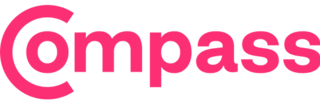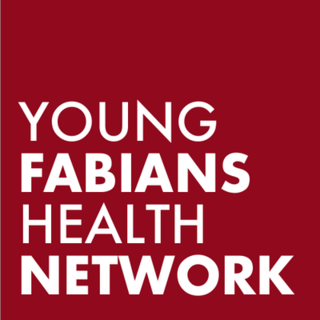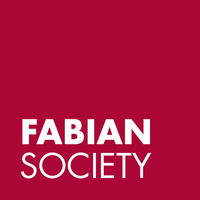
A think tank, or policy institute, is a research institute that performs research and advocacy concerning topics such as social policy, political strategy, economics, military, technology, and culture. Most think tanks are non-governmental organizations, but some are semi-autonomous agencies within government, and some are associated with particular political parties, businesses or the military. Think tanks are often funded by individual donations, with many also accepting government grants.
Prospect is a monthly British general-interest magazine, specialising in politics, economics and current affairs. Topics covered include British and other European, as well as US politics, social issues, art, literature, cinema, science, the media, history, philosophy and psychology. Prospect features a mixture of lengthy analytic articles, first-person reportage, one-page columns and shorter items.

The Fraser Institute is a libertarian-conservative Canadian public policy think tank and registered charity. It is headquartered in Vancouver, with additional offices in Calgary, Toronto, and Montreal. It has links to think tanks worldwide through the Economic Freedom Network and is a member of the free-market Atlas Network. Fraser describes itself as independent and non-partisan.
ODI, formerly the Overseas Development Institute, is a global affairs think tank, founded in 1960. Its mission is "to inspire people to act on injustice and inequality through collaborative research and ideas that matter for people and the planet." It does this through "research, convening and influencing, to lead new thinking and future agendas to deliver transformational change." Its chair is Suma Chakrabarti.

The Centre for Independent Studies (CIS) is an Australian right-wing think tank founded in 1976 by Greg Lindsay. The CIS specialises in public policy research and publishes material in areas such as economics, education, culture and foreign policy. Although there are no explicit ties between the CIS and the centre-right Liberal Party, the CIS is politically aligned with the Liberal Party, praising Liberal Party founder Robert Menzies, hosting various Liberal Party politicians and holding very critical views of the Labor Party. However, it has also hosted Labor prime ministers and politicians, and often also criticises the Liberal Party's policies.

The Young Fabians is the under age 31 section of the Fabian Society, a socialist society in the United Kingdom that is affiliated with the Labour Party (UK). The Young Fabians operate as a membership-driven think tank that organises policy debates, research projects, publications, conferences, and international delegations. The organisation holds no collective position on policy.

Compass is a British centre-left pressure group, aligned with the Labour Party which describes itself as: "'An umbrella grouping of the progressive left whose sum is greater than its parts". Like the formally Labour-affiliated think tank the Fabian Society it is a membership-based organisation and thus seeks to be a pressure group and a force for political organisation and mobilisation.

Mahmoud Mohieldin, is an economist with more than 30 years of experience in international finance and development. He is the UN Climate Change High-Level Champion for Egypt. He is an Executive Director at the International Monetary Fund. He has been the United Nations Special Envoy on Financing the 2030 Sustainable Development Agenda since February 2020. He was the Minister of Investment of Egypt from 2004-2010, and most recently, served as the World Bank Group Senior Vice President for the 2030 Development Agenda, United Nations Relations and Partnerships. His roles at the World Bank also included Managing Director, responsible for Human Development, Sustainable Development, Poverty Reduction and Economic Management, Finance and Private Sector Development, and the World Bank Institute; World Bank President's Special Envoy on the Millennium Development Goals (MDGs), the Post-2015 Development Agenda, and Financing for Development; and Corporate Secretary and Executive Secretary to the Development Committee of the World Bank Group's Board of Governors. Dr Mohieldin also served on several Boards of Directors in the Central Bank of Egypt and the corporate sector. He was a member of the Commission on Growth and Development and was selected for the Young Global Leader of the World Economic Forum in 2005. His professional experience extends into the academic arena as a Professor of Economics and Finance at the Faculty of Economics and Political Science, Cairo University and as a Visiting Professor at several renowned Universities in Egypt, Korea, the UAE, the UK and the USA. He is a member of the International Advisory Board of Durham University Business School. He also holds leading positions in national, regional and international research centres and associations. He has authored numerous publications and articles in leading journals in the fields of economics, finance and development.
Patrick Diamond worked as a policy advisor under the Labour Party government of the United Kingdom in a role covering policy and strategy.
Demos is a cross party think tank based in the United Kingdom with a cross-party political viewpoint. Founded in 1993, Demos works with a number of partners including government departments, public sector agencies and charities. It specialises in public policymaking in a range of areas - from education and skills to health and housing.

The Fabian Society is a British socialist organisation whose purpose is to advance the principles of social democracy and democratic socialism via gradualist and reformist effort in democracies, rather than by revolutionary overthrow. The Fabian Society was also historically related to radicalism, a left-wing liberal tradition.
The International Centre for Policy Studies (ICPS) is an independent NGO, founded in 1994 which aims to promote public policy concepts and practice and apply them to influential policy research that affects both the public and private sectors in Ukraine.
The Instituto de Pensamiento Estratégico Ágora A.C. (IPEA) is a private, independent, apolitical and non-profit think tank dedicated to the construction of a free, virtuous and prosperous society. It focuses on the development of youth, research and public policy proposals.
Bright Blue is an independent think tank and pressure group advocating for liberal conservative and one nation conservative ideas and policies, based in the United Kingdom. Founded in 2014 by British entrepreneur Ryan Shorthouse, Bright Blue aims to "defend and champion liberal, open, democratic and meritocratic values, institutions and policies." Bright Blue is a membership-based think tank, with membership open to anyone who identifies as a liberal conservative.

The Young Fabians Health Network is a special interest group of the youth section of the Fabian Society.
Centre for London is London's dedicated think tank. Based in the UK, it undertakes research and organises events aimed at developing new solutions to the capital's critical challenges. The Centre, which is politically independent, advocates for a fair and prosperous global city.
Who Funds You? is a project that rates and promotes the transparency of funding sources for think tanks. The project scored think tanks according to four criteria, namely whether the organisation discloses its income, whether it publishes financial details online, whether individual donors and the amounts of each donation are published, and whether corporate donors are named and the amounts of each donation published. The project's first report into think tank transparency was published in June 2012. According to Martin Bright of The Spectator, the "exercise seems to demonstrate that left-leaning think tanks are more transparent than right-wing ones".








